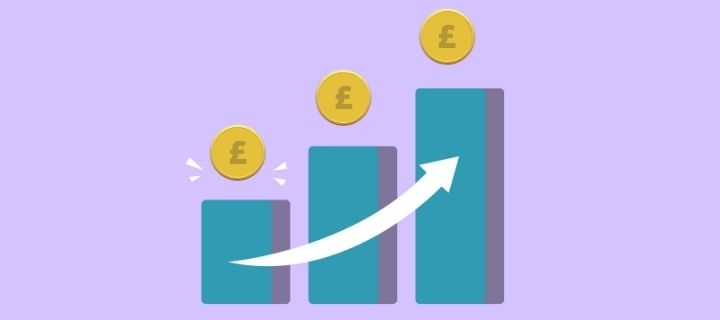
Maintaining a steady cash flow, along with careful financial planning, will help to give you clarity at different stages of your life. This can be especially useful during transitional phases such as starting a new job, selling a business, moving to a new home or preparing to retire.
Life has a habit of throwing us unexpected challenges and despite our best efforts, we may not always be as prepared as we had hoped when the worst does happen. A stable cash flow will give you a solid foundation for your financial plans, so you can stay one step ahead and cover most eventualities. And once you have retired, you will see the merits of having a steady cash flow, as this will help you manage your retirement income, so you always have enough.
Cash flow vs. financial planning: Why does cash flow matter?
Cash flow is a way of making sure you have enough money coming in to cover all your outgoings, and this should include a good-sized monthly pension contribution. If you run a business, then you’ll be very familiar with this term. But if you’re an employee or you don’t need to work, then it’s still worth getting to grips with your ingoings and outgoings sooner rather than later.
Essentially, a strong cash flow will help you get a handle on your finances, save more than you spend, and provide you with peace of mind for the future, which is the golden ticket to achieving your financial plans. Being in a good position today will provide you with a sustainable lifestyle now and a better standard of retirement tomorrow.
Let’s take a look at two simplified examples of two couples on similar incomes, but with very different situations:
Priya and Raj have a combined net income of £70,000. Their mortgage, household bills, food and total lifestyle costs come to £3,500 per month, equating to approx. £42,000 spend each year. This leaves them with around £2,333 surplus each month and a healthy cash position. They can choose to save into a pension or invest this money to fund their retirement, and this gives them a financial buffer for unexpected life events. They also have enough to spend on a luxury holiday or a new car, as long as their monthly outgoings do not increase.
David and Ella also have a combined net income of £70,000. They have a large mortgage, and their household bills, food and lifestyle costs come to £6,000 per month, equating to approx. £72,000 spend each year. This leaves them with a £2,000 annual shortfall and a poor cash flow, which has resulted in a reliance on credit cards with interest. They do not have a pension or any extra money to save or invest to fund their retirement. They may struggle to pay out for unexpected problems, should the worst happen.
A poor cash flow will prevent you from having a ‘rainy day’ fund earmarked for expensive home repairs, such as a new boiler or a roof replacement. It will also impact your financial goals and at worst, can spiral into serious debt over time.
If you’re not already tracking your monthly outgoings, then start by creating a household budget. Log all your spending and work out which expenses you can reduce to improve your position. Your aim should be to always cover any expenditure without going into debt. And once you are stable, you will have a clearer focus for your financial planning and achieving your future goals.
How does cash flow influence financial planning?
Financial planning enables you to plan ahead and plot your life map in advance, so you can look forward to a comfortable or luxurious retirement. At different points in your life, you will want different things. Your responsibilities will vary; this could be through being a parent to a growing child or managing a growing business.
To have a successful financial plan and achieve the goals plotted out, your cash flow needs to be strong throughout your lifetime; there is a direct correlation between the two – one cannot succeed without the other. As a result, by incorporating cash flow into your plan, and your goals into your cash flow, you can prepare for any big life events, which may have a financial implication, such as:
- You might be considering retiring or reducing your hours at work.
- Your child may have become an adult and they need support with university fees or help with a deposit for their first home.
- You may decide to buy a second property like a holiday home or for rental purposes.
- You might downsize to a new home and choose to spend your surplus money on a motorhome or a luxury cruise.
- You may sell your business or receive an unexpected windfall in the form of inheritance or even a lottery win.
As financial planners, we use tools to model your ingoings and outgoings over your lifetime, and there are many benefits of cash flow modelling.
It’s all about balance
It can be easy to spend more when your earnings increase or you receive an unexpected lump sum. But if your grasp on your cash flow is poor, you might run out of money if you’re living a lavish lifestyle; there have been many lottery winners who find themselves bankrupt.
What you can afford to do now might not be an option tomorrow without some thought to how you can maintain a steady flow of incoming cash. And this could jeopardise your future plans. No matter what stage of life, a stable cash flow will help you to achieve your financial goals.
If you’re looking for ways to balance your cash flow so you can improve your financial planning, speak to our independent financial planners – get in touch.

